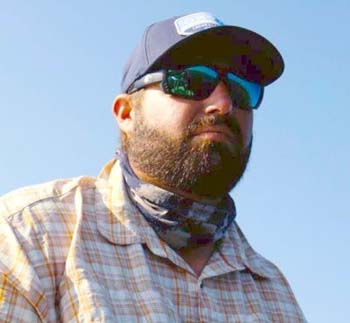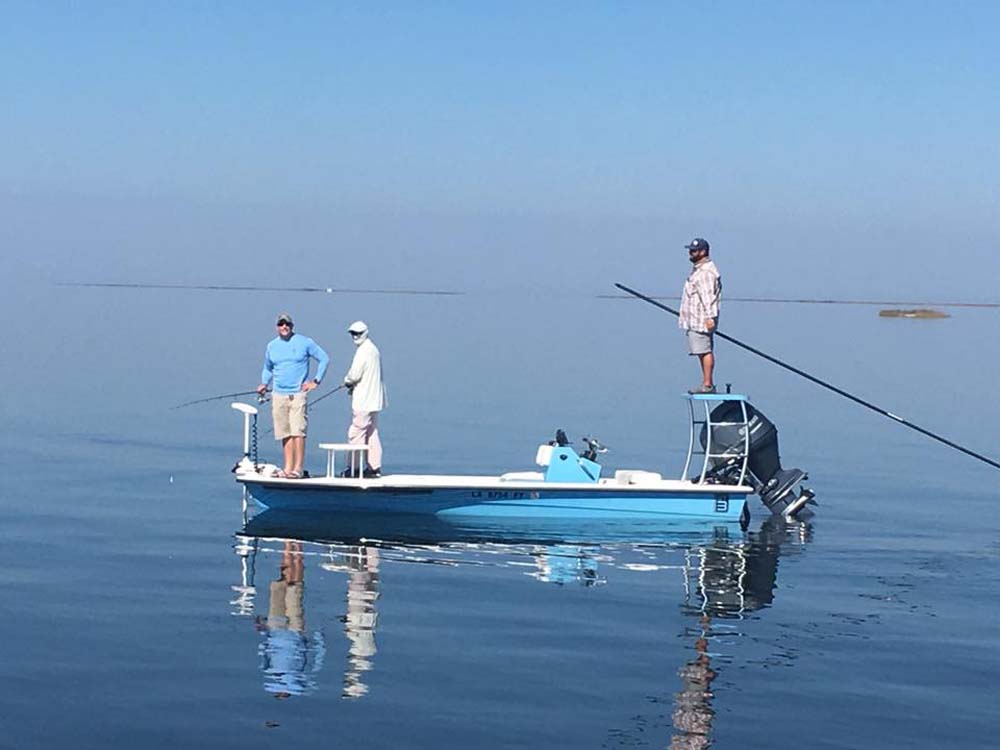
AFFTA
American Fly Fishing Trade Association’s Government Affairs Report

Lucas Bissett is owner of Lowtide Charters, a fly fishing guide service operating south of New Orleans. He graduated from University of South Florida in 2003 before moving back to his home state to pursue fly fishing guided business. He has been a champion of coastal conservation, including founding the Black Mangrove Project in St. Bernard Parish, which was featured in a award-winning documentary as well as several magazine articles and podcasts.
By Lucas Bissett / The Mullin Report – excerpted / November 2, 2021
Who is AFFTA?
The American Fly Fishing Trade Association (AFFTA) is the sole trade organization for the fly-fishing industry. Our Mission is to guide the sustainable growth of the fly fishing industry through Trade Development and Stewardship.
CONTACT:
American Fly Fishing Trade Association, P.O. Box 1029, Bozeman, Montana 59771
The Mullin Report 11-2-21 – American Fly Fishing Trade Association
NOTE: The following is an excerpt
The Simplifying Outdoor Access for Recreation (SOAR) Act was introduced in April 2021 in the Senate by Senator Martin Heinrich (D-NM) and Senator Shelley Moore Capito (R-WV) and in the House by Rep. Joe Neguse (D-CO). The purpose of the bill is to streamline the recreation permitting process to make accessing the outdoors for outfitters, guides, and other recreation users (like camps and school groups) simpler and less expensive.
The SOAR Act would implement several changes to the current system of outdoor recreation permitting, which is complex and can be a real hurdle to getting outdoors. The bill addresses the following issues:
- Permit Processing – the bill directs agencies to eliminate duplicative processes, shorten processing timelines, and reduce the cost of processing permits. This will help to make the permitting process more predictable, consistent, and affordable, which will be especially helpful for small outfitting and guiding businesses with limited resources.
- Permit Flexibility – the bill allows outfitters, guides, and other outdoor leaders to add activities to their permit that are substantially similar to the activities currently under their permit without going through a whole new permitting process. The bill also allows permit holders to share service days with another permittee and allows temporary permits to be converted to long-term permits. These provisions give permit holders the flexibility to grow their business and run it efficiently.
- Transparency – the bill requires federal agencies to share information about new recreation permit availability and requires agencies to respond to permit applications in a timely manner. These are simple changes that will greatly benefit permit holders and those seeking recreation permits.
- Multi-Jurisdictional Trips – when a trip involves multiple jurisdictions managed by different federal agencies, the bill authorizes the agencies to issue a single joint permit rather than requiring the permitee to seek permits from each agency separately.
- Cost – the bill reduces permit fees and cost recovery expenses and requires the agencies to use existing studies and analysis when reviewing permit applications to reduce the permit processing time and cost.
- Permit Reviews – the bill ensures that Forest Service permit holders impacted by situations like weather, wildfires, lack of hunting/fishing licenses who are unable to use all of the permit days assigned to their permit are not penalized the following year with less permit days.
- Liability – the bill reduces barriers to outdoor recreation on federal public lands by state universities, city recreation departments, and school districts by waiving the requirement that those organizations indemnify the U.S. Government against legal liability in states where those indemnification clauses are illegal under state law.

The author, Lucas Bissett, is not a talking head.

